Choosing the wrong freight forwarder can cost your business more than just money. It can throw off delivery schedules, frustrate your customers, and hold back your growth. Whether you’re an Amazon FBA seller, a D2C brand, or a growing MSME importing goods from India to the USA, picking the right freight partner is essential.
The right freight forwarder doesn’t just move your shipments; they simplify your logistics, cut down unexpected costs, and give you peace of mind every step of the way. The wrong one? You’ll find yourself constantly chasing updates and facing avoidable delays. So, how do you steer clear of these challenges and find a freight forwarder that truly fits your business? Let’s break it down.
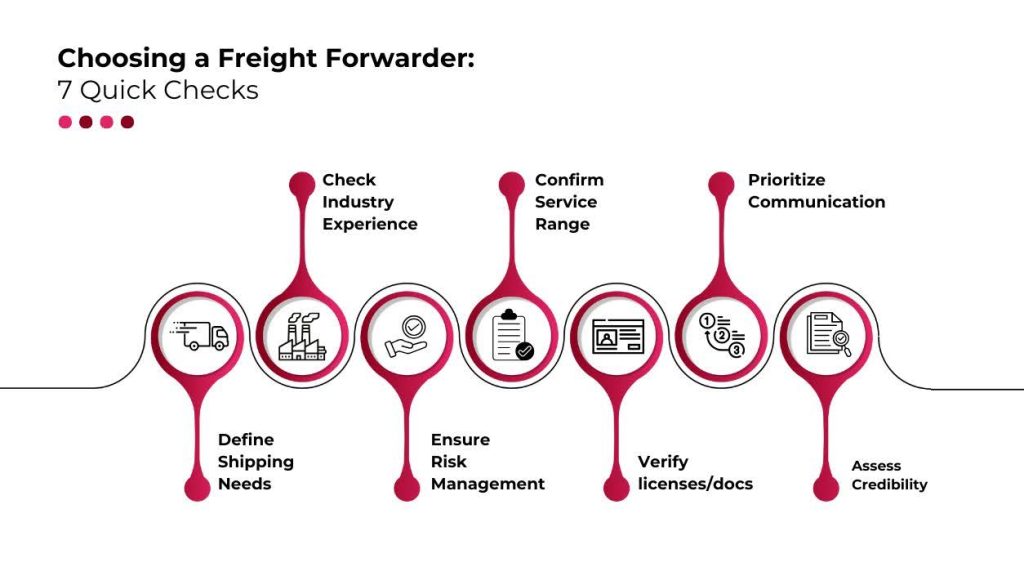
1. Start with Clarity on Your Shipping Needs
Before you begin evaluating freight forwarders, it’s essential to have a clear understanding of your shipping requirements. Knowing exactly what you need will help you find a partner who can meet those demands efficiently and cost-effectively. Ask yourself these important questions to define your shipping profile:
- What are your typical shipment volumes? Do you ship full container loads (FCL) regularly, seasonally, or only occasionally?
- Which shipping routes do you prefer? Are you importing from Indian ports like Nhava Sheva, Mundra, or Chennai to the East Coast, West Coast, or other U.S. destinations?
- Do your shipments require any special handling, such as Amazon FBA prep, warehousing, or customs clearance support?
- What is your ideal transit time? Are you looking for the fastest possible ocean freight, or can you accommodate longer transit times for cost savings?
- Are there specific delivery requirements at the destination, such as direct delivery to fulfillment centers or distribution hubs?
- Do you need additional services like cargo insurance, packaging assistance, or compliance with certain trade regulations?
Having clear answers to these questions will make it easier to evaluate which freight forwarders align best with your business needs and ensure smooth, hassle-free shipping.
If your needs include door-to-door FCL ocean freight from India to the U.S., then you’re already in Intoglo‘s specialty zone.
Suggested Read: Get Instant FCL Shipping Quotes From India to USA
2. Experience Matters: Look for Industry-Relevant Expertise
When looking for a freight forwarder, industry-specific experience is crucial for smooth customs clearance and logistics. A forwarder familiar with your product and destination understands the unique requirements and challenges involved. For example, apparel shipments require knowledge of HS Code 62034231 and related duties, while furniture, food, or footwear need special handling and compliance expertise to ensure timely and safe delivery.
You can explore these details yourself using Intoglo’s HS Code Finder tool to better understand your shipment requirements.
Why Global Reach and Network Matter
A freight forwarder’s global reach and network are just as critical as their industry knowledge. Here’s what to look for:
- Strong relationships with key ocean carriers to secure competitive rates and reliable space on vessels.
- Access to multiple major U.S. ports provides flexibility in routing and faster delivery times.
- Warehousing capabilities in strategic locations across the U.S., offering storage, fulfillment, and last-mile delivery support.
Choosing a forwarder with deep expertise and a broad network means fewer surprises, better service, and smoother supply chain operations overall. Intoglo offers warehousing across 50+ U.S. locations and ensures goods are routed optimally for faster deliveries. Explore our Warehousing Solutions to see how we can simplify your storage and distribution needs.
3. Risk Management is Not Optional
Shipping goods overseas comes with many risks, from port congestion and lost containers to customs delays. Sea-Intelligence’s Global Liner Performance reports indicate that global schedule reliability in 2024 consistently remained within the 50%-55% range, meaning that 45%-50% of shipments were delayed. That’s why partnering with a freight forwarder who prioritizes risk management is critical. Look for a forwarder that:
- Contingency Planning: Helps you plan for potential disruptions and contingencies to minimize impact on your shipments.
- Cargo Insurance Support: Assists in securing appropriate cargo insurance to protect your goods against loss or damage.
- Transparent Communication: Maintains proactive and clear communication throughout the shipment process, so you’re never left in the dark.
- Real-Time Tracking: Provides real-time tracking and timely updates to keep you informed at every stage of your shipment’s journey.
- Regulatory Guidance: Offers expert support to help you navigate changing customs regulations, export-import restrictions, and compliance protocols.
Intoglo‘s platform allows full visibility into your shipment’s journey, while the support team actively communicates delays or changes so you’re never caught off guard. For additional protection, you can use the Carbon Emissions Calculator on Intoglo’s platform to obtain sustainability insights and ensure your carbon-related documentation is ready for environmentally conscious buyers.
4. Evaluate Their Service Stack
A great freight forwarder does more than just move your cargo. They help streamline your entire supply chain. When evaluating potential partners, it’s important to assess the full range of services they provide to meet your specific needs.
Consider asking:
- Do they offer multi-modal solutions if your shipment requires more than just ocean freight?
- Can they manage door-to-door delivery, covering everything from the origin port to your warehouse or final destination?
- Do they provide value-added services like customs clearance, cargo consolidation, and repacking?
- Can they support compliance with destination-specific requirements, such as Amazon FBA labeling or documentation for regulated goods?
For instance, if you’re shipping goods like footwear under HS Code 6400, working with a forwarder experienced in handling bulky or duty-heavy cargo can make a big difference. Additionally, services such as Amazon FBA labeling and palletization support can save you time and reduce hassles.
With Intoglo, you get more than just ocean shipping. Enjoy value-added services like U.S. warehousing, Amazon FBA coordination, and access to a comprehensive Template Library with commercial invoices, packing lists, and certificates of origin.
Suggested Read: Footwear HS Code Guide for Import and Export
5. Licensing and Documentation Should Be Crystal Clear
When you’re choosing a freight forwarder, don’t overlook the legal and regulatory basics. Ensuring your forwarder is properly licensed and understands all required documentation can save you from costly compliance issues, shipment delays, or even cargo seizure.
Why Licensing Matters
Freight forwarders must operate within international legal frameworks. If they’re not properly licensed, your cargo could be at risk, especially when shipping across borders. Look for a forwarder that:
- Holds a valid FMC (Federal Maritime Commission) license if they operate or book shipments to the U.S.
- Complies with Indian export regulations, including proper documentation at origin.
- Is transparent about required documentation and permits, especially for regulated or sensitive items.
Pay Attention to Product-Specific Documentation
Depending on what you’re shipping, documentation needs can vary:
- If you’re shipping batteries (HS Code 8506) or electronics, your forwarder should guide you on DG (dangerous goods) declarations.
- For textiles or garments, ensure they help with textile declarations and country-of-origin labeling requirements.
- If your goods are subject to additional inspections (like food or wood products), your forwarder should assist with the necessary certificates (e.g., phytosanitary or FDA compliance).
Working with a licensed and knowledgeable freight partner ensures smoother customs clearance and peace of mind across the entire shipping journey.
At Intoglo, documentation is part of the onboarding process. We ensure you have everything from a commercial invoice to the packing list, bill of lading, and even customs codes cross-checked via our HS Code Lookup Tool.
6. Communication & Support: The Intangible Advantage
Even the most well-planned logistics operation can fall apart without strong communication. When you’re moving cargo internationally, responsiveness and clarity are essential. Delays, customs issues, or documentation problems can arise at any point, and how quickly your freight forwarder responds can make or break your timeline. A forwarder that values communication will ensure you’re never left in the dark.
What to Look for in Communication & Support
- Real-Time Shipment Tracking: You should be able to monitor your cargo at every stage from pickup to delivery. A forwarder with a transparent, digital tracking system gives you peace of mind and control.
- Proactive Notifications: Timely updates are crucial, whether there’s a weather delay or customs hold-up. Look for a provider that doesn’t wait for you to ask but keeps you informed at every milestone.
- Dedicated Human Support: Bots can answer basic questions, but complex issues demand human insight. Make sure you have access to a responsive support team that understands your account, shipment history, and business needs.
- Shipment Milestone Visibility: A modern freight forwarder should give you more than just a tracking number. From warehouse check-ins to container gate-ins, every step should be visible and documented.
For high-volume or time-sensitive shipments, consistent and clear communication can significantly reduce stress and improve delivery outcomes. When your freight partner truly acts as an extension of your team, it shows, especially when things don’t go as planned.
7. Credibility, Reviews, and Contingency Planning
Choosing the right freight forwarder is about more than just services and pricing—it’s about trust. Before committing, take the time to evaluate a forwarder’s reputation and how they perform under pressure. In international logistics, challenges and disruptions are common, so you need a partner with a proven track record of handling these situations effectively.
In fact, reliability is consistently ranked as the most important factor when selecting a freight forwarder, with a mean importance rating of 4.72 out of 5 in a major study of international freight forwarder clients.
How to Check Credibility and Reliability
- Check Verified Reviews and Testimonials: Look for feedback from businesses similar to yours. Verified reviews on third-party platforms can give insight into real-world experiences, especially around reliability and service quality.
- Evaluate On-Time Performance History: A strong track record for meeting ETAs (Estimated Time of Arrival) is a good indicator of operational efficiency. If timelines consistently slip, that’s a red flag.
- Test Their Responsiveness: How fast and thoroughly do they respond to inquiries? Quick, informed replies even before you sign a contract signal solid support down the road.
Check Their Backup Plans
Things like port strikes, vessel rollovers, and customs delays aren’t uncommon, but a good freight forwarder prepares for them. Make sure they can:
- Reroute Through Alternate Ports: If one route is disrupted, they should have access to backup ports and carrier options.
- Offer Flexible Warehouse Receiving: Missed delivery windows can cost money. Ask if they provide flexibility at destination warehouses, especially for Amazon FBA or time-sensitive goods.
- Build in Buffer Timelines: A reliable partner won’t promise unrealistic deadlines. They’ll build a plan with buffers to absorb disruptions without derailing your supply chain.
Credibility and contingency readiness are critical when entrusting someone with your international cargo. Additionally, you can use tools like the US Exporter Navigator to explore U.S.-based buyer opportunities, helping you plan your freight forwarding based on demand hotspots.
Conclusion
Freight forwarding is no longer just a transactional service. It’s a strategic advantage. The right forwarder acts as an extension of your business, streamlining logistics, reducing costs, and enabling expansion into new markets.
When you choose a freight partner like Intoglo, you’re not just booking a container. You’re gaining access to:
- Fast, door-to-door ocean FCL shipping from India to the USA
- Transparent pricing and real-time tracking
- Warehousing and Amazon FBA support
- HS Code tools and documentation templates
- Responsive human support every step of the way
Choosing wisely could mean the difference between a smooth shipping process and missed business opportunities. So, the next time you’re looking for a freight forwarder, make sure they don’t just meet your expectations. They exceed them.
Need a reliable partner who ticks every box? Explore how Intoglo can be your all-in-one freight solution from pickup in India to doorstep delivery in the USA. Get a quote today.
FAQs
1. What should I look for when choosing a freight forwarder?
When looking for a freight forwarder, focus on experience in your industry, range of services (like door-to-door shipping or warehousing), proper licenses, and responsive customer support. Make sure they offer transparent pricing and online tracking.
2. Why is industry experience important in a freight forwarder?
Industry experience ensures your freight forwarder understands specific shipping regulations, documentation needs, and risk factors for your product category, reducing delays and compliance issues.
3. What licenses should a freight forwarder have?
A reliable freight forwarder should have valid operating licenses, FMC or NVOCC registration (for the USA), and specific permits if handling hazardous or sensitive goods. Always verify these details before shipping.
4. Can freight forwarders handle Amazon FBA shipments?
Yes, many freight forwarders specialize in Amazon FBA shipping. They handle compliance, labeling, and direct delivery to Amazon warehouses in the USA.
5. How do freight forwarders manage shipping risks?
Freight forwarders manage risks by offering cargo insurance, compliance support, and contingency planning. Clear communication and digital tracking tools also help reduce uncertainty during transit.


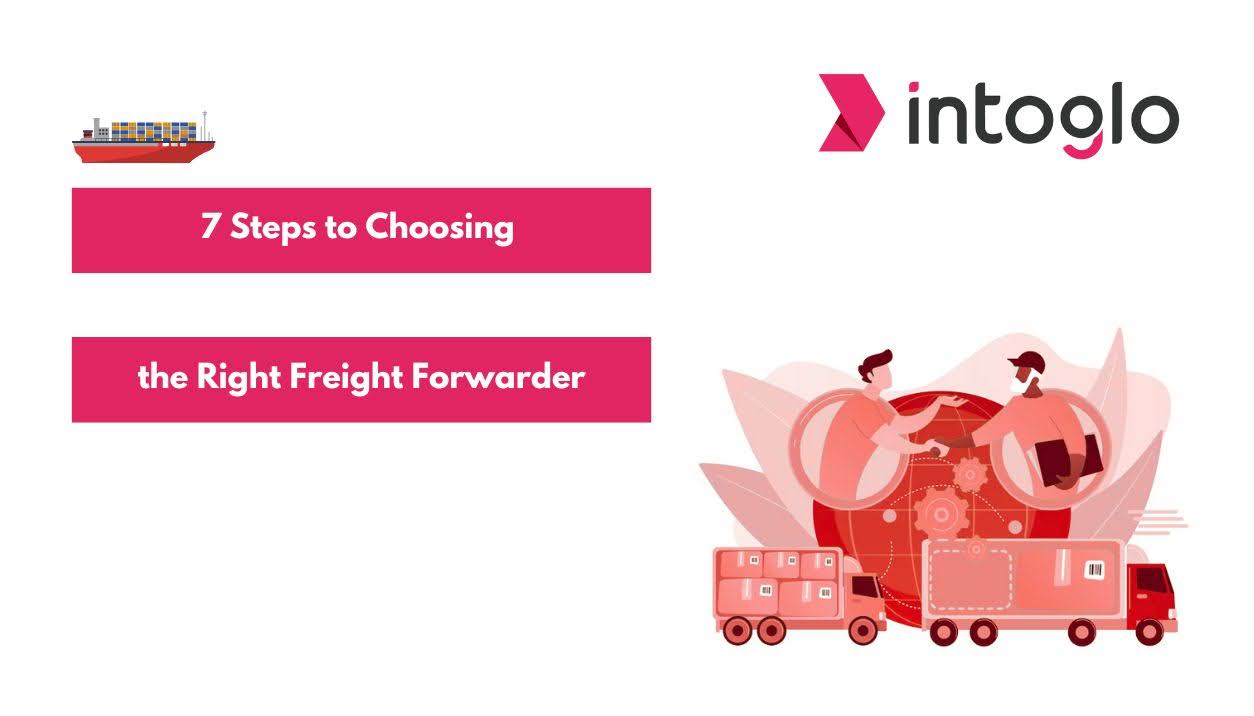


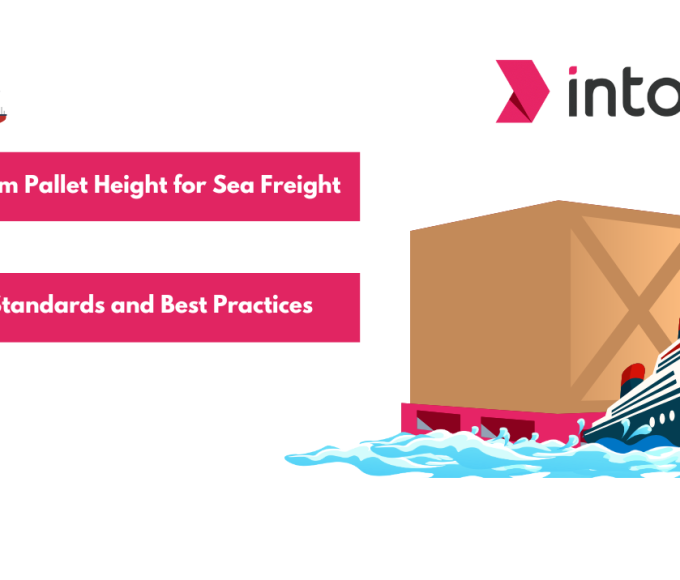
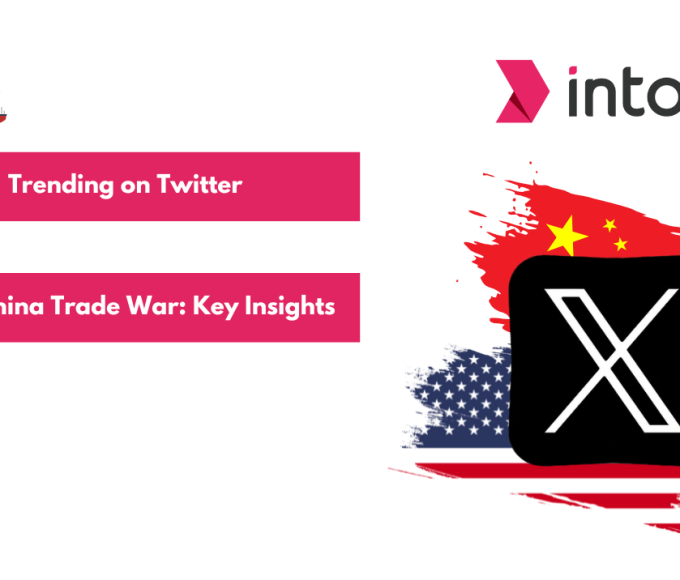
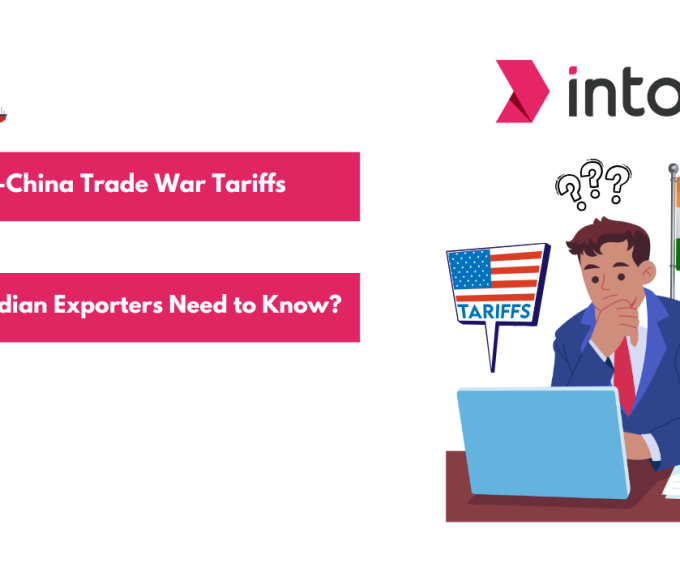
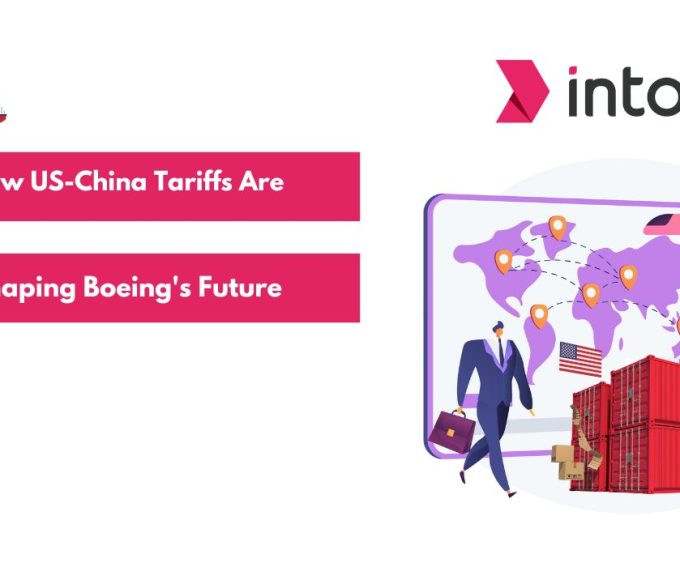
Leave a comment